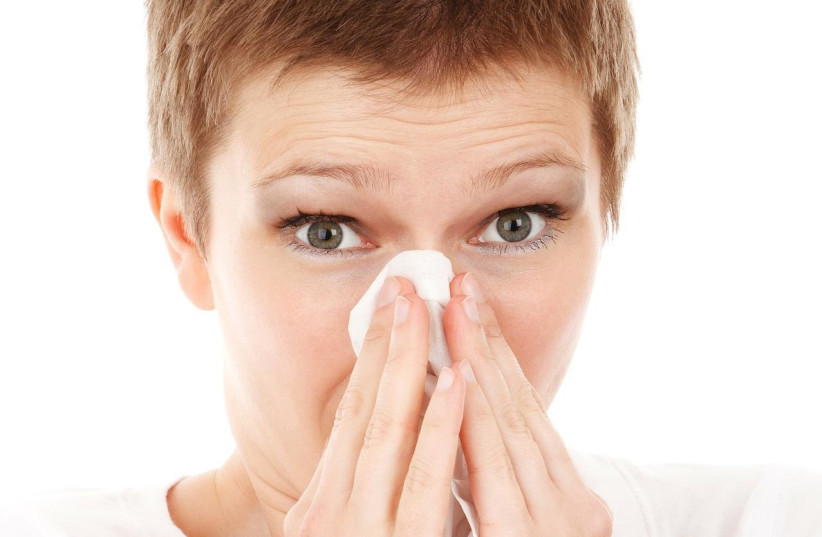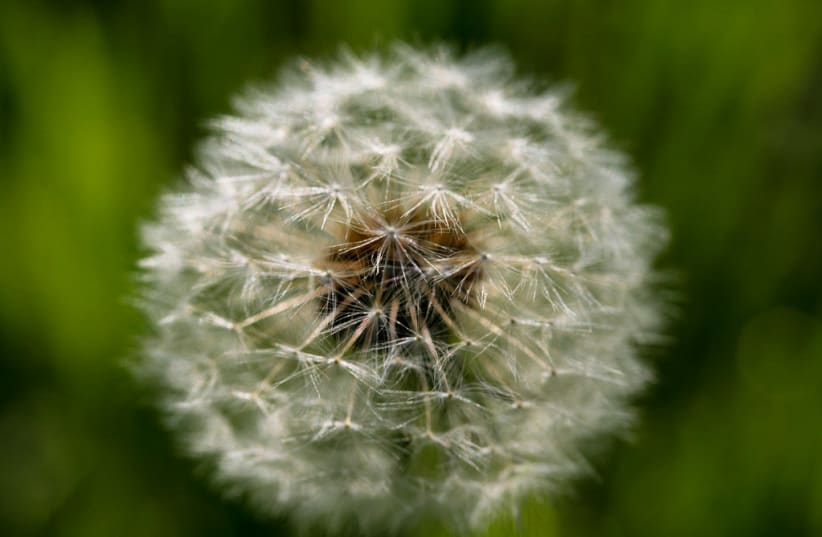Nearly 70% of people who have allergies are allergic to house dust mites, and only 30% are allergic to seasonal flower plants. Dr. Yehuda Schwartz, a pulmonary medicine specialist, explains everything you need to know about allergies and how to treat them.
"House dust mites multiply in the spring and cause those who are allergic to it a runny nose or asthma attacks due to allergies. They’re found in homes, mattresses and pillows. When it comes to seasonal allergies, certain plants such as wild grass or the olive tree that blooms in the spring and is very prevalent in our area also cause allergies,” he explained.
What are common symptoms during allergy season?
The most common symptoms are allergic rhinitis, sneezing, stuffy nose, red eyes. In allergic asthma there are additional symptoms of wheezing and coughing.
How to diagnose allergies

"There’s a simple and effective test for environmental allergens. Put a drop of each allergen at a separate point on the middle finger, by a gentle scratch, and after 20 minutes examine the reaction: if redness and especially swelling occurs, we know the body recognizes the allergen and responds with inflammatory cell stimulation," said Schwartz.
He explained that "sometimes there will be no distinct reaction or the skin may overreact and it’s difficult to diagnose which allergen it has reacted to. In such cases the diagnosis is supplemented with a special blood test called RAST, a test which is used for diagnosing skin problems or for babies for whom skin tests can’t be performed. RAST uses the same allergens and in case they produce a reaction, an allergy is actually diagnosed."
Are allergies hereditary?
"Yes, allergies can be genetic. Certain population groups are more likely to suffer. A person is born with a tendency to an allergy and depending on the exposure there are symptoms. Sometimes a person has a high allergy severity and because he/she isn’t exposed to allergens he’s sensitive to, the allergy can develop in adulthood. It’s a function of changes that occur in the body and also a function of the intensity of exposure,” he said.
Can an allergy go away without treatment?
“If the disease is mild, it goes away with or without treatment, but without treatment it may take longer. Exposure to house dust mites is throughout the year, so the allergy is chronic. Asthma is also defined as a chronic inflammatory disease, but if an allergic person takes preventative treatment it’s possible to get through the season without problems Eventually, the situation may improve to the point where treatment isn’t needed. In most cases, patients who suffer for more than a year will need treatment for many months until treatment can be stopped,” he said.
Treatment for allergies
"The best treatment is to remove the cause. In case of allergy to house dust mites, get rid of books and objects that collect dust, maintain a clean and mostly non-dusty environment, use a vacuum cleaner (and not a broom) on all objects, including the mattress and pillow and wet rag to clean surfaces. Don’t use dry rags which will disperse the dust but won’t get rid of it," he said.
Schwartz adds that care should be taken when replacing winter clothes with summer clothes. In a closet they accumulate dust so wash them before use.
In the case of allergic asthma, the most common and easiest method is to use steroid-based inhalers with bronchodilators, which open the lungs and for runny nose, steroid-based sprays and antihistamines.
For those who suffer from runny nose due to allergies, when symptoms appear use a spray regularly to stop symptoms and improve quality of life. Today there’s a drug that is taken orally instead of by injection, in order to get vaccinated against the allergy, and the treatment with the spray can be stopped but this should be done with your doctor’s guidance.
For those who are allergic to olive trees or grass, Schwartz recommends using an epinephrine spray based on steroids or antihistamines to stop the allergy outbreak. Asthmatics should start using inhaler steroids before the start of the season to get through it easily and calmly without developing severe symptoms. Once symptoms begin to appear, it’s harder to regulate and improve the condition and it takes longer to treat the allergy.
This article was written in partnership with Zap Doctors.
